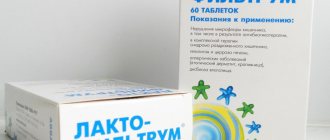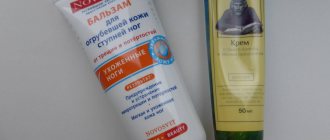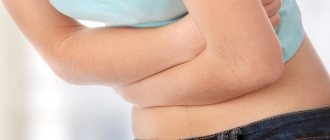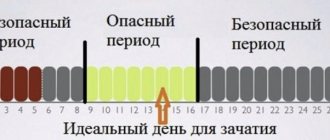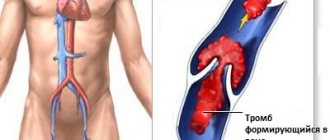Destruction of the tissues that form the crown and root parts of the tooth invariably leads to discomfort, and in more advanced cases – to acute, throbbing or nagging pain. In dentistry, toothache has a special definition – dentalgia or odontalgia. Often the cause of pain can be gum disease, jaw problems, or injuries. Unfortunately, it is not always possible to get an appointment with a dentist at the first signs of discomfort, so you can use tablets for toothache to relieve symptoms and improve your well-being.
It is important to understand that not a single tablet can eliminate the cause of toothache. The only way to cope with dentalgia for a long time is to consult a dentist for therapeutic or surgical treatment.
The choice of a particular treatment method depends on the complexity of the problem and the stage of its development.
By clicking the “request a call” button you agree to the personal data processing policy.
Modern pharmacology offers a wide range of effective drugs that can reduce discomfort caused by progressive dental diseases or injuries. Today, you can buy a variety of medications for toothache in pharmacies. Conventionally, they can be divided into 3 groups:
- NSAIDs (non-steroidal anti-inflammatory drugs)
. As a rule, the source of toothache is an inflammatory process. NSAIDs don't just relieve pain - they relieve inflammation, thereby reducing pain. - Analgesics.
They do not affect the course of the inflammatory process - they eliminate the source of pain by affecting the nerve endings and pain centers in the brain. - Local painkillers
. These are drugs such as lidocaine and novocaine. As a rule, these products are produced in the form of injections, but you can find small aerosol cans with lidocaine on sale - one press and the pain goes away for 30-40 minutes. The main disadvantage of local anesthetics is their strong effect on nearby tissues, which can result in a “cotton tongue” effect, temporary loss of skin sensitivity at the site of exposure, and lack of taste sensations.
As a rule, tablets are the most popular - they are easy to use, and if you choose the right drug, you can use them not only to relieve toothache, but also as an antipyretic, a medicine for migraines, joint pain, etc.
Other medications for toothache
In addition to tablets and capsules, the pharmaceutical industry offers a lot of other drug options that help in the fight against dentalgia:
- Gels.
They are most often used in children during teething. Moreover, such remedies also have an effect in adults during the eruption of wisdom teeth. Among the most popular drugs of this kind are ointments and gels “Cholisal”, “Solcoseryl”, “Dentol”, “Kamistad”, “Metrogil Denta”. - Dental drops.
These are safe, natural preparations made on the basis of natural ingredients, extracts, and essential oils. They have a local anti-inflammatory, calming and analgesic effect. Popular drops - “Dentaguttal”, “Dentinox”, “Dantinorm”, “Denta” - Injections.
These may be conventional drugs for intramuscular administration (Ketonal, Ketorol, Diclofenac), or they may be drugs for point application. Most often, injections are used by professionals for strong pain relief before tooth extraction or treatment (Ultracain, Septodont). - Antibiotics.
It is important to understand here that if a tooth hurts due to the development of caries or pulpitis, then antibiotics are useless (after all, they do not have any effect on the exposed nerve). But if there is a suspicion of the formation of an abscess under the root (obvious inflammation), then it makes sense to take a course of antibiotics (amoxicillin, clindomycin, metronidazole, chloramphenicol, biseptol) for maximum resorption of the accumulated pus. Of course, immediately after this you need to go to your doctor and eliminate the root cause of the pain (treat or remove the tooth). Antibiotics are available in the form of tablets, ointments, and injections. - Sprays and aerosols.
These medications have a local anesthetic effect; simply put, they freeze the tooth. The most popular is Ledocaine spray.
Folk remedies:
- Rinses
Most often, a saline or soda solution is used (1 teaspoon per glass of water), to which you can add a couple of drops of iodine. You can rinse a sore tooth when the first pain appears. - A decoction of sage, chamomile, and St. John's wort for rinsing is also recommended. It is quite simple to prepare: pour boiling water over 1 teaspoon of any of the above herbs, hold in a water bath for 15-20 minutes, strain and cool slightly. Rinsing is carried out as needed to relieve pain with a warm decoction.
- Cooling
. For local anesthesia, you can temporarily apply a piece of ice or something cold to the painful tooth (or rather, to the cheek on the painful side). As a rule, the effect occurs quickly, but does not last long. The main disadvantage of this method is that after applying ice, the pain may disappear for a while, and then return with renewed vigor. - Garlic applications
. Oddly enough, you need to apply garlic not to the tooth, but to the hand (in the place where the pulse is usually felt). The garlic is cut into small cubes or pressed through the garlic, a piece of bandage is placed on the wrist (if this is not done, there is a high risk of a chemical burn from contact of garlic juice with the skin), folded in half or three times, garlic is laid on the bandage, covered with two or three layers of bandage on top. and secure the application. If you have a toothache on the right side, then apply the garlic to your left hand and vice versa.
You can find even more traditional methods in this article.
When a person starts to have a toothache, he is ready to use any means to make it end as soon as possible. Some patients, in the fight against dentalgia, use homeopathic remedies, which, in theory, are designed to cope with the disease. In fact, this makes very little sense: toothache is not a disease, but a symptom of it that needs to be quickly relieved. Homeopathic medicines are intended for long-term treatment, so instead of wasting time and money on useless medicines, it is better to take a tablet of a good painkiller and see a dentist as soon as possible.
Acupressure
Acupressure helps with various types of pain. However, you need to know which points affect certain parts of the body. Location of points:
- In the cavity between the phalanges of the fingers - thumb and index.
- At the base of the ear lobe on the side opposite to the problem tooth. The process of exposure is reminiscent of clamping a clip - you should hold the lobe with your fingers and hold it for a while.
- In the depression that is located between the lower jaw and cheek. Press with your thumb, a little forcefully. This simple action works very effectively, allowing you to either relieve pain completely or significantly reduce it. It works on problems that have arisen with the upper teeth.
- On the angle of the lower jaw. The impact helps relieve pain in the lower teeth.
- On the side of the index finger. You should look closer to the larger one, going down a couple of millimeters under the nail.
The technique will help not only relieve, but also completely eliminate pain. No time is required - according to Chinese medicine, you need to spend 3 minutes. It must be remembered that if a person begins to feel unwell, nausea or headache, then the impact on the points should be stopped.
Knowing how to get rid of severe toothache using your own body, a person can calmly go hiking or to the country without thinking about medications
In late pregnancy, such exposure is highly discouraged, since it is believed that it stimulates labor.
What to do if the pills don't help?
It often happens that even after taking strong painkillers, toothache does not subside. This happens for many reasons: advanced caries, pulpitis, severe destruction of the crown, abscess on the root (by the way, practice shows that in this case even local anesthetic injections such as Ultracaine are ineffective). In addition, do not forget about individuality - there are people who are simply not susceptible to the effects of drugs. Also, drugs that affect the nervous system and brain pain centers may not be effective in patients who are in a constant state of stress.
If no pharmaceuticals or folk remedies help, you should not look for a magic pill - you must urgently go to a dental clinic for qualified help.
How often can you take painkillers?
Whatever the cause of toothache, you should never abuse painkillers:
There is no universal recipe for taking painkillers for toothache. Each drug is accompanied by instructions that clearly describe the dosage and method of use depending on the nature of the pain, age, weight of the patient, etc.
If we summarize all the recommendations, we can say that taking more than 3-4 tablets a day is not recommended (while strong tablets, such as Nise or Ketanov, it is generally better to take no more than 2 times a day).
Weaker drugs can be taken in larger dosages (1-2 tablets at a time, 3-4 times a day). But, again, if the pain is severe and you have to swallow 8 Paracetamol tablets to cope with it, it is better to take 1-2 tablets of Aertal or Nurofen - the effect will be approximately the same.
Adverse reactions
Side effect of the drug is visual disturbances
Like any medicine, Nimesil may have side effects:
- allergic reactions - sweating, rash, itching, erythema, anaphylactoid reactions, dermatitis, urticaria, erythema multiforme, angioedema, Stevens-Johnson syndrome, Lyell's syndrome;
- hematopoietic disorders - eosinophilia, pacitopenia, anemia, thrombocytopenia, hemorrhagic syndrome, thrombocytopenic purpura;
- visual disturbances – blurred vision;
- disorders of nervous activity - feelings of fear, dizziness, headache, nightmares, drowsiness, nervousness, encephalopathy;
- circulatory disorders - hot flashes, tachycardia, arterial hypertension, sudden changes in blood pressure;
- digestive system disorders - nausea, diarrhea, vomiting, flatulence, constipation, abdominal pain, gastritis, dyspepsia, tarry stools, stomatitis, bleeding from the digestive tract, gastric perforation or ulcer, duodenal perforation or ulcer, hepatitis, cholestasis, jaundice, increased levels of liver enzymes;
- breathing disorders - shortness of breath, attacks of bronchial asthma;
- general disorders – asthenia, general malaise, hypothermia;
- disorders of the genitourinary system - renal failure, hematuria, urinary retention, dysuria, oliguria, interstitial nephritis;
- other disorders – hyperkalemia is possible.
Pregnancy pills
Pregnancy is the period when a woman should treat herself with the most care and carefully monitor her health - because the condition of her unborn baby directly depends on this. Therefore, even at the planning stage of pregnancy or at its earliest stages, it is necessary to solve all existing problems in the oral cavity. If for some reason this was not possible, you should prepare for the fact that coping with the resulting toothache will be very problematic:
- During pregnancy, and especially in the first and third trimester, it is prohibited to take any highly effective painkillers (it has been scientifically proven that active substances can penetrate the placenta, causing harm to the unformed body of the unborn baby).
- Hormonal changes that invariably accompany the process of bearing a child can lead to the most unexpected consequences - from unexpected destruction of enamel and gum disease to the manifestation of complete immunity to medications.
That is why, among the drugs approved for pregnant women, doctors name only Paracetamol, Nurofen (in the 1st and 2nd trimester), Analgin (in the 2nd trimester), Airtal (in the 1st and 2nd trimester). All of the above drugs can be used in moderation - 1 tablet per day for no more than 5 days in a row.
Severe toothache in pregnant women is best relieved with safe folk remedies (gargle, ice, garlic).
All of the above also applies to the lactation period. At this time, it is advisable to reduce the intake of any medications to zero, since after absorption into the blood they enter the body of the newborn.
Do not ignore preventive visits to the dentist.
It is enough to visit a specialist 1 – 2 times a year, which will allow you to promptly identify any dental problem at an early stage of development. This means that its elimination will be quick, easy and without complications.
By clicking the “request a call” button you agree to the personal data processing policy.
Contraindications
- history of hepatotoxic reactions caused by the active substance;
- bronchospasm, urticaria, rhinitis associated with the use of acetylsalicylic acid or other non-steroidal anti-inflammatory drugs in the anamnesis;
- concomitant use of drugs with potential hepatotoxicity;
- condition after coronary artery bypass surgery;
- inflammatory bowel diseases (ulcerative colitis, Crohn's disease) in the acute stage;
- increased body temperature in infectious and inflammatory diseases;
- exacerbation of a peptic ulcer, a history of ulcers, perforation or bleeding in the digestive tract;
- a combination of bronchial asthma, nasal polyposis and intolerance to non-steroidal anti-inflammatory drugs;
- bleeding of cerebrovascular or other localizations; diseases accompanied by pathological bleeding;
- decompensated heart failure;
- severe blood clotting disorders;
- decompensated renal failure, hyperkalemia;
- liver diseases;
- liver failure;
- alcoholism, drug addiction;
- pregnancy or lactation;
- age under 12 years;
- hypersensitivity to the components of the drug.
The decision to prescribe the drug Nimesil remains with the attending physician.
Tablets for children
As you know, most of all tablets recommended for adults are absolutely contraindicated for children. It is for this reason that it is better not to take risks and choose drugs that are appropriate for the child’s age. Today in pharmacies you can find a huge selection of gels, ointments, analgesic syrups, rectal suppositories that will help cope with childhood dentalgia:
- Cholisal-gel.
- Dentinox gel.
- Children's Nurofen (drops, syrup, tablets)
- Panadol rectal suppositories
- Viburkol rectal suppositories.
The instructions for use in the above-mentioned drugs and their analogues often contain an age limit - from 6 or 12 years. However, on the recommendation of a doctor and in the presence of acute pain, it is permissible to give these medications to children under 6 years of age.
As in the case of pregnant women, children are recommended to use folk remedies to eliminate dentalgia - rinsing, cooling, garlic.
Nimesil during pregnancy and lactation
Nimesil, like other drugs of the NSAID class, is contraindicated for use during pregnancy and lactation. The active substance of the drug - nimesulide - negatively affects the course of pregnancy and the embryo, as it can lead to premature closure of the ductus arteriosus, hypertension in the pulmonary artery system, impaired renal function, an increased risk of bleeding, decreased contractility of the uterus, and the occurrence of peripheral edema.
Nimesil is contraindicated during pregnancy
Also, it is worth considering that Nimesil is not recommended for use by women who are planning to become pregnant, as the drug can negatively affect female fertility.
Main causes of pain
There can be many reasons why a tooth hurts, but the most obvious of them are the following:
- Caries
. Even almost imperceptible damage to tooth enamel can lead to periodic, barely noticeable pain. If you do not see a doctor in time, the hole will grow, and with it the pain will intensify. After caries reaches its final stage, painful sensations will appear when eating, when cold air enters the oral cavity, etc. - Pulpitis
. Damage to the pulp, which contains numerous nerve endings, invariably leads to regular throbbing pain. - Periodontal diseases
. Damage to the soft and bone periodontal tissues leads to severe inflammation and unbearable pain. - Removal of a tooth
. Despite the fact that the operation is performed under local anesthesia, after the anesthetic wears off, the place where the tooth used to be will be very painful. - Eruption of wisdom teeth
. If they grow evenly, then the person feels only discomfort, which is easily relieved with the simplest painkillers. If not everything goes smoothly with teething (the tooth grows crookedly, rests on the root of the neighboring tooth), then special medications will be required to relieve pain.
Obviously, none of the above problems can be solved by taking pills - only a highly qualified specialist can eliminate the source of pain. The pill is just a way to relieve pain for a short time.
Additional recommendations for pain management
Ketorol, Pentalgin, Ketanov, Nimesulide have a high analgesic effect. Despite the guaranteed analgesic effect, these medications should not be taken by pregnant women and children. The active components of analgesics easily cross the placental barrier and can harm the fetus. As for children, a more careful, accurate calculation of the dosage of the drug is required. You will not be able to install it yourself.
Ultracaine injection eliminates dentalgia for 6 hours. But performing the injection yourself is contraindicated. At home, you can moisten a cotton swab with one of the indicated solutions (you must first carefully open the ampoule). Then apply the prepared tampon to the gum. The first signs of effectiveness are a decrease in the sensitivity of oral tissues.
The use of antibacterial drugs is contraindicated. These medications require schematic administration and are prescribed only taking into account the existing pathology.
Taking analgesics must be stopped before visiting a doctor (at least 3 hours before). The active ingredients in painkillers reduce sensitivity in the mouth. The patient cannot accurately explain to the doctor the location of the pain and its nature. This makes it difficult for a specialist to diagnose.
If the dentist confirms that the pain is caused by dental problems and excludes the presence of other pathologies, anesthesia will be required. A patient who has been taking analgesics for a long time to feel better, such an action reduces the possibility of performing it.
Prevention of dental diseases
From a very young age, everyone knows what needs to be done to prevent teeth from hurting:
- Regular oral hygiene. You need to brush your teeth thoroughly, morning and evening, using a good toothpaste and brush. During the day, after each meal, you should rinse your mouth thoroughly, ideally using dental floss.
- Visit the dentist twice a year for preventative care.
- Eliminate any foci of infection in the oral cavity in a timely manner and carry out sanitation in a timely manner.
- Do not neglect modern methods of protecting teeth - fluoridation, remineralization, fissure sealing.
In addition, dental health largely depends on what we eat - the diet should include as many fresh vegetables and fruits, fish, and lean meat as possible; Eliminate sugar and sweets as much as possible. Teeth should be protected from mechanical damage, and do not overuse whitening toothpastes.
Author: Elena Grunina Dentist-therapist, endodontist. Work experience more than 9 years. The information is for reference only. Before treatment, consultation with a doctor is necessary.

